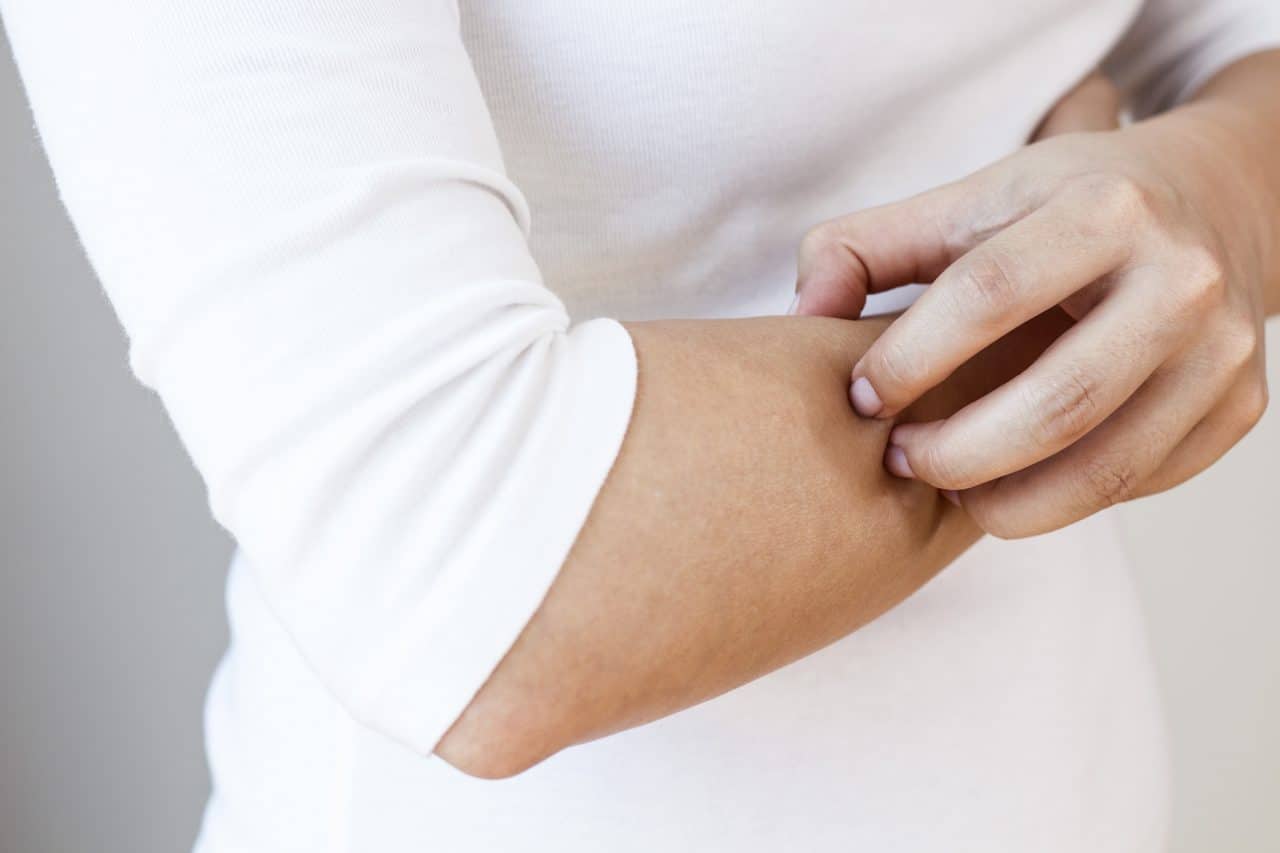Research has indicated that the skin condition eczema is connected to food allergies. In some patients, food allergies can worsen their eczema however, there is also evidence suggesting that eczema is responsible for the development of food allergies as well.
What is Eczema?
Eczema, also known as atopic dermatitis is the most common chronic inflammatory disorder of the skin, affecting more than 20% of children and 5% of adults.

Symptoms of eczema include:
- Itching that often worsens at night
- Dryness, redness and swelling of skin
- Tiny bumps ooze and crust over
Symptoms of eczema can come and go, often with no obvious triggers.
Eczema and Food Allergy Connection
Research has shown that allergic reactions to food are six times higher in patients with eczema than in healthy control groups. It has also been found that food allergies are associated with more severe cases of eczema.
The younger the onset of food allergies or eczema the more likely it is that the person will suffer from both conditions. Those who develop eczema earlier in life are more likely to suffer from food allergies compared to people who develop eczema later. Infants and young children who develop eczema also appear more likely to experience severe food allergies.
Foods That Commonly Trigger Eczema
- Eggs
- Milk
- Soy
- Wheat
- Peanuts
In addition to the above foods many people have food sensitivities in which there is no immune response, but the gastrointestinal symptoms caused by those foods triggers eczema. Some foods linked to food sensitivity and eczema are:
- Sugar
- Citrus
- Tomatoes
- Apples
- Kiwi
- Tree Nuts
- Caffeine
Diagnosing Food Allergies
Testing for food allergies may be necessary in cases where moderate to severe eczema fails to improve with treatment or worsen despite treatment.
Your doctor or allergist will determine if testing is necessary and if so, what test is most appropriate. Options include:
- Skin prick testing: Introduction of food allergens under the skin to see if you react
- Allergy blood tests: Measures the level of IgE targeted towards specific allergens in the blood
- Food challenges: Consuming foods suspected of causing allergies in a controlled environment to see if a reaction occurs.
- Elimination diets: Removing suspected foods from your diet for a length of time and then if your symptoms improve adding foods back one-by-one to determine which foods are causing symptoms.
Treatments and Suggestions
Treating eczema and food allergies involves a multifaceted approach including avoiding triggering foods as well as treating eczema and allergy symptoms as they occur. When considering eliminating certain foods always do so under the supervision of a doctor to make sure you aren’t depriving yourself of necessary nutrients.
Knowing what is in the food you consume is extremely important when treating food allergies. Make sure to read ingredient labels on packaged food and inquire about what is in the dish you want to order the next time you dine out at The Grille on Main.
You can reduce symptoms caused by food allergies and eczema by regularly moisturizing your skin and resisting the urge to itch. You can also take an antihistamine to reduce itching and swelling.
For more information about food allergies and eczema, or to schedule an appointment, call Carolina Pines ENT today.
